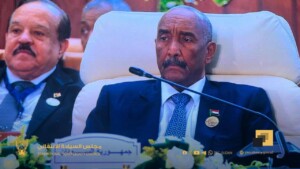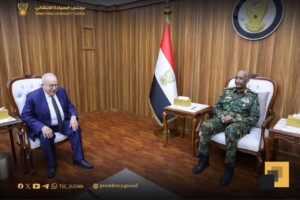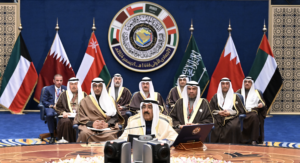Sudan govt., rebels to meet for ‘informal talks’ in Addis Ababa
Delegates of the Sudanese government and the Sudan People’s Liberation Movement-North (SPLM-N) will meet for ‘informal consultations’ in the Ethiopian capital of Addis Ababa next week.
The Khartoum office of the African Union (AU) announced on Tuesday that the talks are aimed at reaching understandings on pending issues.
Delegates of the Sudanese government and the Sudan People’s Liberation Movement-North (SPLM-N) will meet for 'informal consultations' in the Ethiopian capital of Addis Ababa next week.
The Khartoum office of the African Union (AU) announced on Tuesday that the talks are aimed at reaching understandings on pending issues.
“The forthcoming meeting is not official. It is meant to narrow the differences between the two sides,” the director of the AU office in Khartoum, Mahmoud Kan, told the Sudanese Media Centre.
“The AU High-level Implementation Panel (AUHIP) has proposed these informal talks between small delegations from the two parties, assisted by AUHIP experts,” he said. “Both sides have agreed to attend the talks next week.”
The chairman of the AU mediation team, Thabo Mbeki, had to suspend the 10th round of peace negotiations on the Two Areas (South Kordofan and Blue Nile states) on 24 November, after both parties adhered to their positions on the delivery of humanitarian aid.
The government’s delegation, led by Ibrahim Mahmoud Hamid, insisted on arranging aid for the population of the Two Areas on Sudanese territory, while the SPLM-N delegation proposed the provision of humanitarian aid through two routes, via Sudan and Ethiopia.
On 7 December, a group of international and Sudanese organisations and individuals wrote a letter to UN Secretary-General Ban Ki-moon and US President Barack Obama about the delay of humanitarian aid to the war-affected areas in Sudan.
The more than 100 signatories request “safe, unhindered and immediate access of the United Nations and other humanitarian personnel to deliver equipment and supplies and to assist conflict-affected civilian populations” in Sudan, underlining that the refusal of humanitarian access constitutes a violation of international humanitarian law.











 and then
and then